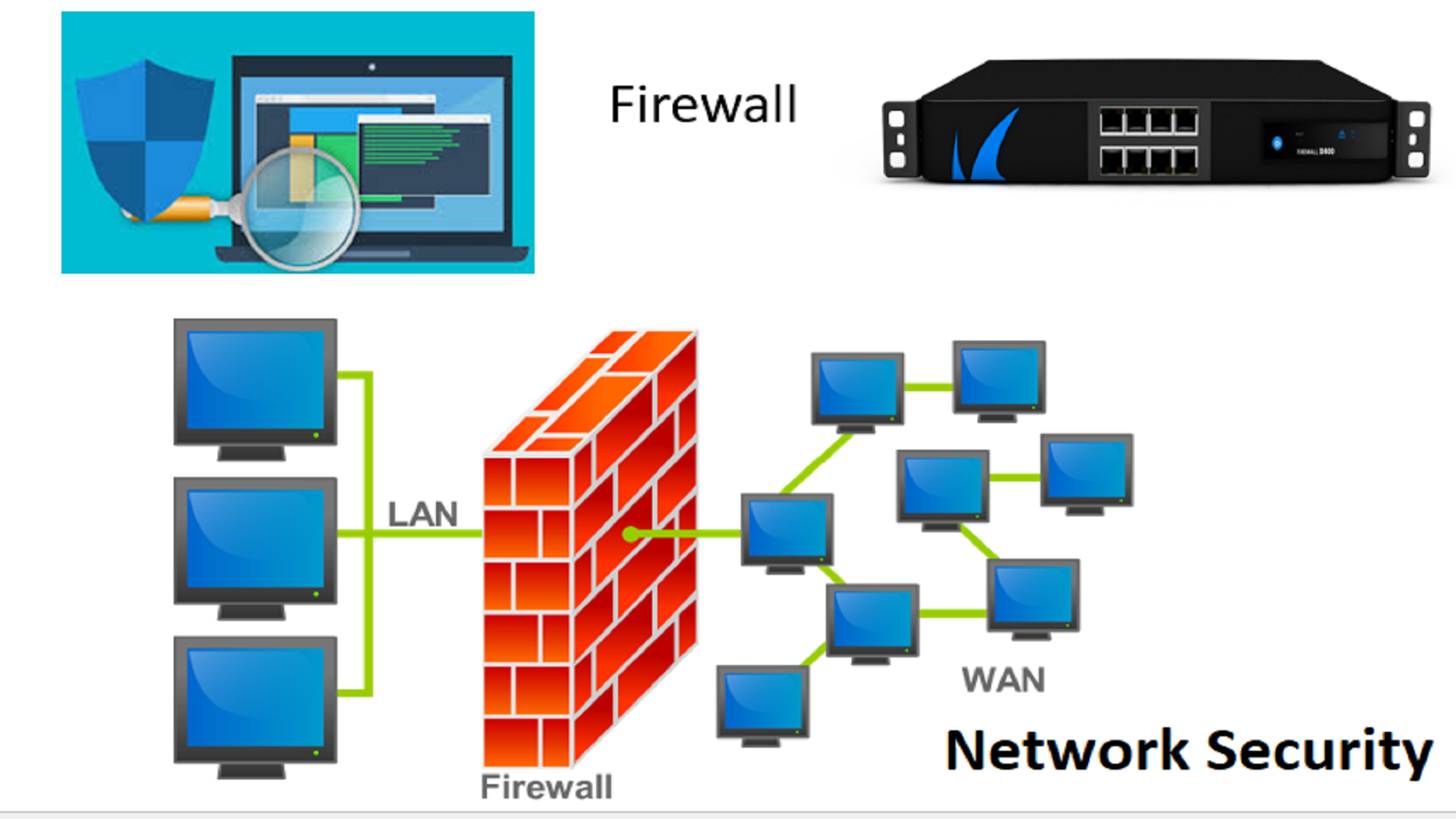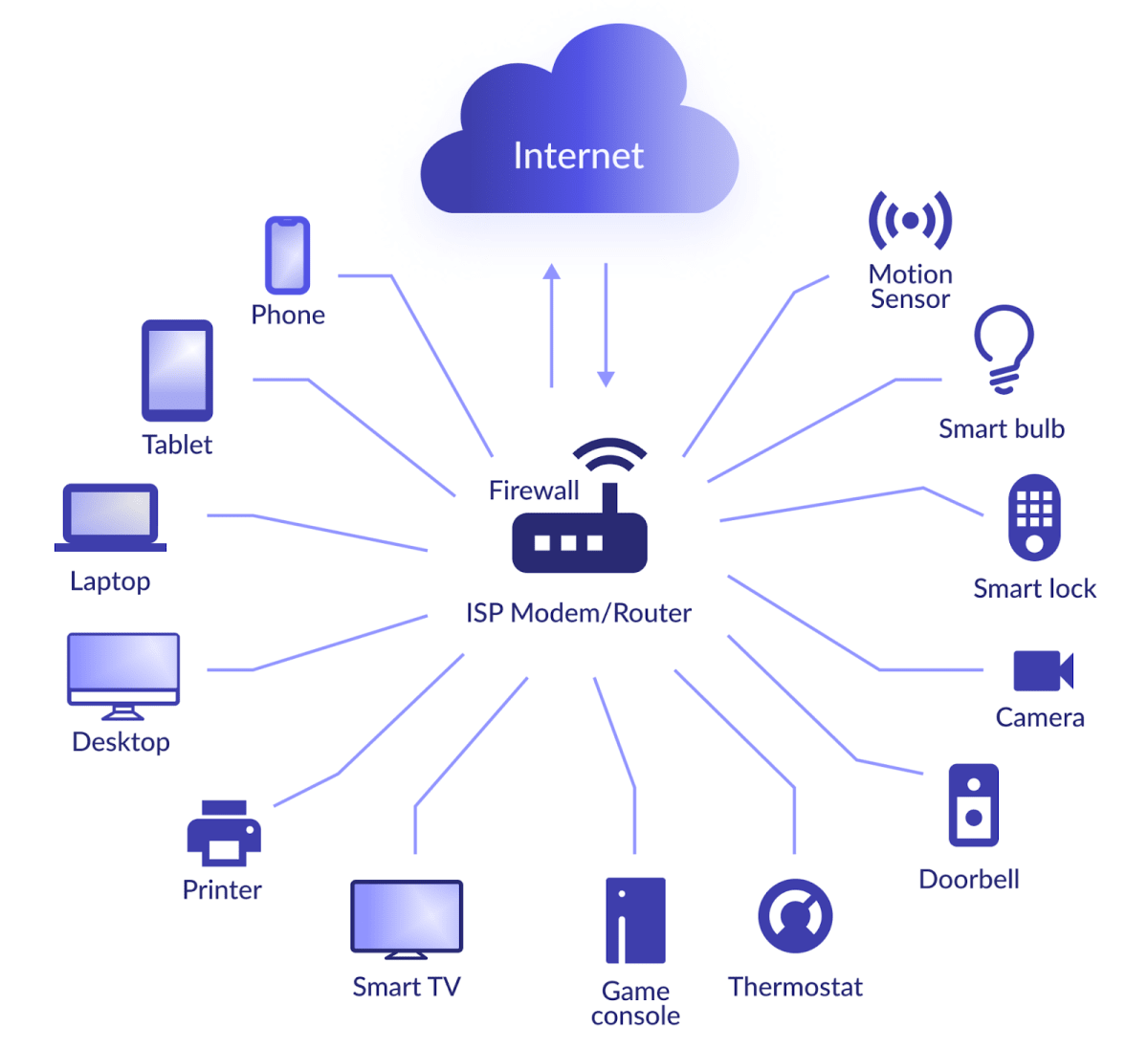Secure IoT Devices Behind A Firewall: Best Practices
How can we ensure the security of our increasingly interconnected world, especially with the proliferation of Internet of Things (IoT) devices? Securing IoT devices behind a firewall isn't just a best practice; it's a critical necessity for maintaining network integrity and safeguarding sensitive data. This intricate landscape demands a nuanced understanding of both IoT technology and robust security measures.
Traditional firewalls, designed for centralized networks managing traffic between servers and workstations based on IP addresses and port numbers, are often insufficient for the complexities of IoT. IoT devices, with their diverse communication protocols and often unpredictable traffic patterns, require a more specialized approach. This is where the IoT firewall steps in, acting as a vigilant gatekeeper, monitoring and controlling incoming and outgoing traffic based on meticulously defined rules. Its primary function is to prevent unauthorized access, effectively shielding IoT devices and networks from malicious actors.
| Topic | IoT Firewalls |
|---|---|
| Definition | A specialized security solution designed to protect IoT devices and networks from unauthorized access by monitoring and controlling network traffic based on pre-defined rules. |
| Key Features | Traffic monitoring, access control, intrusion detection, protocol filtering, device authentication. |
| Benefits | Enhanced security for IoT devices, protection against cyberattacks, improved network integrity, granular control over device access, simplified security management. |
| Challenges | Compatibility with diverse IoT protocols, scalability to handle a large number of devices, real-time performance, integration with existing security infrastructure. |
| Further Reading | NCSC - Internet of Things (IoT) security guidance |
Consider the industrial IoT landscape. A firewall ensures that only authorized devices and applications can communicate with critical machinery, preventing potentially catastrophic disruptions. Unlike traditional firewalls, IoT firewalls are designed to accommodate the unique communication patterns of these devices, often operating outside the typical server/client architecture. This is crucial because managing IoT devices behind a firewall requires a deep understanding of the specific needs of each device and the potential vulnerabilities they present.
- Watch Movies Online Your Guide To Streaming Where To Watch
- Kannada Movies 2023 Releases Reviews Where To Watch
One common challenge is managing remote access to IoT devices behind a firewall. Solutions like RemoteIoT address this by enabling secure interaction with devices across network barriers. This is essential for industries like manufacturing, healthcare, and logistics, where remote monitoring and control are crucial for operational efficiency. However, implementing RemoteIoT requires careful consideration of security best practices to prevent unauthorized access and data breaches. Techniques like Network Address Translation (NAT) can help disguise the IP addresses of IoT devices, adding another layer of protection.
Network segmentation emerges as a powerful strategy for enhancing IoT security. By isolating IoT devices from critical business systems, organizations can limit the potential impact of a security breach. Instead of a single, vulnerable network, segmented networks create isolated compartments, each with its own security parameters. This granular control helps contain threats and prevents them from spreading across the entire network.
Selecting the right tools and technologies is paramount. Robust device management platforms offer centralized control over IoT devices, enabling administrators to monitor device status, apply security updates, and enforce access policies. Data security is another crucial aspect of IoT management. Implementing strong encryption protocols and access control mechanisms ensures the confidentiality and integrity of sensitive data generated by IoT devices.
- Avoid Errors Addressing No Results Bengali Entertainment Insights
- Erik Menendez Wife Tammi Love Behind Bars Untold Story
Looking ahead, the future of IoT device management hinges on automation and artificial intelligence. AI-powered systems can analyze vast amounts of IoT data to identify anomalies and potential threats in real-time, enabling proactive security measures. As the IoT ecosystem continues to evolve, robust security practices and advanced technologies will be essential to ensure the safety and reliability of these interconnected systems.
Practical examples of RemoteIoT behind firewalls offer valuable insights. Consider a manufacturing facility where sensors monitor equipment performance. A secure remote access solution allows engineers to monitor these sensors in real-time, even from outside the factory network. This enables proactive maintenance, preventing costly downtime and ensuring operational continuity. Another example is in healthcare, where remote patient monitoring devices transmit vital signs to healthcare providers. A secure firewall implementation ensures the privacy and security of this sensitive patient data while allowing healthcare professionals to access it remotely for timely intervention.
The Internet of Things, a network of physical devices embedded with sensors, software, and other technologies, has transformed the way we interact with the world. From smart homes to industrial automation, IoT devices are becoming ubiquitous. Managing these devices effectively and securely is paramount, requiring a holistic approach that encompasses network segmentation, robust firewalls, and advanced remote access solutions. By prioritizing security, connectivity, and efficiency, organizations can harness the full potential of the IoT while mitigating the associated risks.
In todays interconnected world, managing IoT devices behind a firewall is no longer a technical challenge but a fundamental requirement. As the number of IoT devices continues to grow, so does the imperative to secure them effectively. RemoteIoT behind firewall examples highlight how organizations can leverage advanced remote access solutions to maintain complete control over their IoT infrastructure without jeopardizing security. This requires a comprehensive strategy encompassing best practices, appropriate tools, and a clear understanding of the evolving threat landscape.



Detail Author:
- Name : Damien Bashirian Sr.
- Username : xdooley
- Email : madeline.erdman@rau.com
- Birthdate : 2000-02-01
- Address : 30188 Thiel Points Monamouth, NJ 03750
- Phone : 1-210-474-0856
- Company : Carter-Stroman
- Job : Food Batchmaker
- Bio : Dolores corrupti nihil assumenda. Sint quas aut consequatur eum.
Socials
linkedin:
- url : https://linkedin.com/in/schroedera
- username : schroedera
- bio : Qui nulla aut eos. Aut numquam neque natus sint.
- followers : 6696
- following : 722
tiktok:
- url : https://tiktok.com/@aschroeder
- username : aschroeder
- bio : Minima expedita quasi nostrum eos.
- followers : 1744
- following : 2247
twitter:
- url : https://twitter.com/alvah9500
- username : alvah9500
- bio : Iure amet sequi non harum ab necessitatibus. Voluptatem qui non ut distinctio. Autem aliquam enim corporis at perferendis. Ut ex totam debitis est nam aut aut.
- followers : 6631
- following : 536
facebook:
- url : https://facebook.com/schroedera
- username : schroedera
- bio : Perspiciatis neque quisquam voluptatum delectus ea commodi officia.
- followers : 1967
- following : 2363